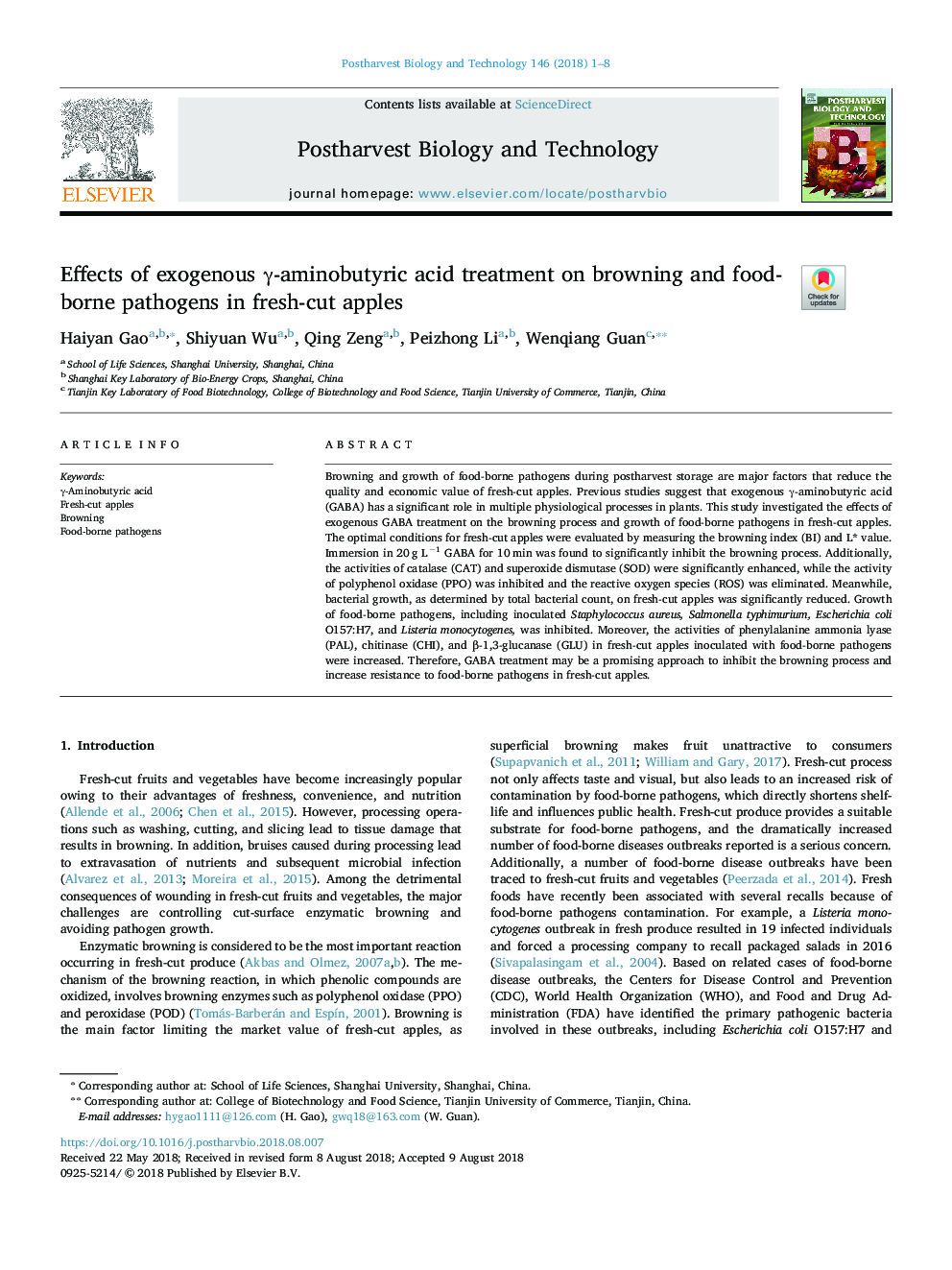| Article ID | Journal | Published Year | Pages | File Type |
|---|---|---|---|---|
| 8881753 | Postharvest Biology and Technology | 2018 | 8 Pages |
Abstract
Browning and growth of food-borne pathogens during postharvest storage are major factors that reduce the quality and economic value of fresh-cut apples. Previous studies suggest that exogenous γ-aminobutyric acid (GABA) has a significant role in multiple physiological processes in plants. This study investigated the effects of exogenous GABA treatment on the browning process and growth of food-borne pathogens in fresh-cut apples. The optimal conditions for fresh-cut apples were evaluated by measuring the browning index (BI) and L* value. Immersion in 20âg Lâ1 GABA for 10âmin was found to significantly inhibit the browning process. Additionally, the activities of catalase (CAT) and superoxide dismutase (SOD) were significantly enhanced, while the activity of polyphenol oxidase (PPO) was inhibited and the reactive oxygen species (ROS) was eliminated. Meanwhile, bacterial growth, as determined by total bacterial count, on fresh-cut apples was significantly reduced. Growth of food-borne pathogens, including inoculated Staphylococcus aureus, Salmonella typhimurium, Escherichia coli O157:H7, and Listeria monocytogenes, was inhibited. Moreover, the activities of phenylalanine ammonia lyase (PAL), chitinase (CHI), and β-1,3-glucanase (GLU) in fresh-cut apples inoculated with food-borne pathogens were increased. Therefore, GABA treatment may be a promising approach to inhibit the browning process and increase resistance to food-borne pathogens in fresh-cut apples.
Related Topics
Life Sciences
Agricultural and Biological Sciences
Agronomy and Crop Science
Authors
Haiyan Gao, Shiyuan Wu, Qing Zeng, Peizhong Li, Wenqiang Guan,
